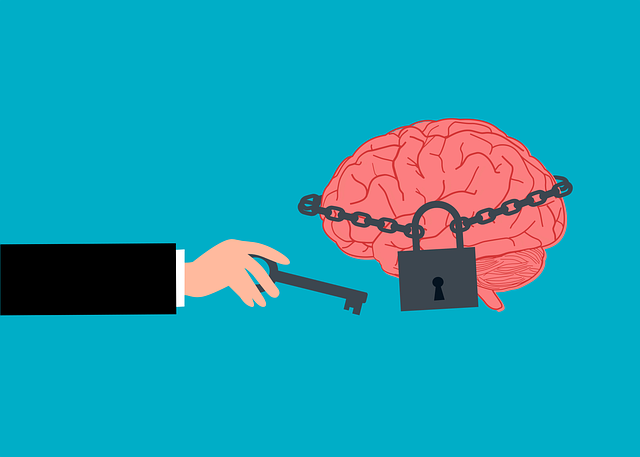Children express stress through behavior, making early intervention crucial. Academic pressure, peer dynamics, and life changes are common stressors. Therapy empowers kids with coping strategies, and bariatric evaluations assess their emotional well-being. The Mental Wellness Podcast Series offers resources for self-awareness exercises. Effective workshops blend structured activities and interactive elements, including role-playing and art therapy, to teach healthy stress navigation. Pre- and post-workshop assessments measure success, guiding improvements in program effectiveness. Ongoing support through peer groups and campaigns fosters sustainable mental wellness, especially in healthcare contexts where burnout prevention is key.
Stress management workshops play a pivotal role in helping children cope with life’s challenges. This article delves into the essential components of organizing such sessions, focusing on understanding childhood stress and its profound impact. We explore effective workshop design, emphasizing interactive activities to foster engagement. Additionally, we discuss strategies for measuring success and providing ongoing support, ensuring lasting positive outcomes. By integrating these practices, organizations can facilitate transformative therapy for children, similar to bariatric evaluations, addressing mental health concerns proactively.
- Understanding Children's Stress and Its Impact
- Designing Effective Stress Management Workshops
- Incorporating Interactive Activities for Engaging Sessions
- Measuring Success and Providing Ongoing Support
Understanding Children's Stress and Its Impact

Children experience stress just like adults, but their responses and expressions can be quite different. Understanding a child’s stress is crucial for effective management. It often stems from various sources including academic pressure, peer relationships, family dynamics, or significant life changes. Unlike adults, children may not verbalize their feelings directly, so it’s essential to observe behavioral changes that could indicate underlying stress.
Early intervention through therapy for children is vital to help them develop coping strategies and enhance mental wellness. Bariatric evaluations, while often associated with physical health, can also provide insights into a child’s overall well-being, including emotional healing processes. The Mental Wellness Podcast Series Production offers valuable resources and Self-Awareness Exercises tailored for kids, empowering them to navigate stress in healthy ways.
Designing Effective Stress Management Workshops

Designing Effective Stress Management Workshops involves a blend of structured activities and interactive elements tailored to diverse participant needs. The best workshops integrate Self-Awareness Exercises to help individuals recognize stress triggers, fostering self-management skills. Incorporate a mix of theoretical knowledge, practical tools, and group discussions for optimal engagement and learning. For instance, starting with an icebreaker activity can create a safe space, while role-playing scenarios offer hands-on experience in managing stressful situations.
Focus on creating a supportive environment where participants feel comfortable sharing their experiences, enhancing Self-Esteem Improvement. This could include breaking into smaller groups for peer support and skill-sharing. For professionals, integrating Risk Management Planning is crucial for navigating high-pressure situations effectively. By combining these elements, workshops become dynamic, empowering attendees with practical stress management strategies that extend beyond the session, potentially mitigating issues like bariatric evaluations triggered by chronic stress.
Incorporating Interactive Activities for Engaging Sessions

Incorporating interactive activities is a powerful strategy to ensure stress management workshops for children are both engaging and effective. These sessions often involve a range of techniques, from breathing exercises to art therapy, designed to teach young participants healthy coping mechanisms. Interactive elements such as role-playing scenarios, group discussions, and hands-on activities like yoga or movement breaks not only capture the children’s attention but also facilitate a deeper understanding of stress relief strategies. By actively participating in these activities, children are more likely to retain the information and feel empowered to apply them in their daily lives.
The benefits extend beyond improved mental well-being. Interactive workshops can also serve as a valuable platform for crisis intervention guidance and depression prevention. Through role-playing, children learn how to navigate social situations, express their feelings, and manage conflicts, which are crucial skills in mitigating anxiety relief. These activities create a safe space where participants feel comfortable exploring their emotions and developing strategies to cope with stress, potentially reducing the risk of more severe mental health issues, including depression.
Measuring Success and Providing Ongoing Support

Measuring success is a crucial step in any workshop organization. In the context of stress management, this involves tracking participant progress and satisfaction levels through pre-and post-workshop assessments. By comparing outcomes, organizers can gauge the effectiveness of the program and identify areas for improvement. These evaluations are essential not only for refining future workshops but also for providing valuable data that can enhance therapy for children and other vulnerable populations.
Ongoing support is equally vital for sustainable change. Workshop organizers should implement strategies such as public awareness campaigns to maintain momentum and encourage continued learning beyond the immediate workshop experience. For healthcare providers, burnout prevention is a key focus area. Incorporating regular check-ins, peer support groups, and accessible resources can help mitigate burnout and promote healthier work environments. This holistic approach ensures that participants not only gain valuable stress management techniques but also have access to ongoing support systems tailored to their needs, including bariatric evaluations when relevant.
Stress management workshops tailored for children are valuable tools in fostering their emotional well-being. By understanding the unique sources of stress among kids, we can design engaging sessions that equip them with healthy coping mechanisms. Through interactive activities and ongoing support, these workshops become transformative experiences, helping children navigate life’s challenges with resilience. Just as bariatric evaluations guide physical health, stress management therapy empowers young minds to thrive in a demanding world.











